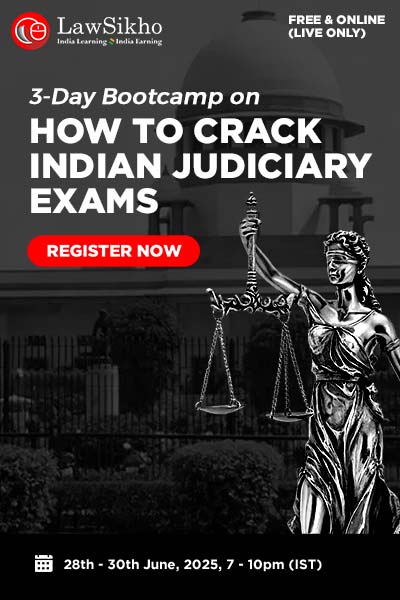This interview has been published by Anshi Mudgal and The SuperLawyer Team

With nearly a decade of experience, could you share what shaped your decision to pursue a legal career? Was law always your intended path, or did your interest develop over time?
Growing up in different parts of the country, I witnessed diverse cultures and educational experiences. During all these changes, the only thing that remained constant was my love for reading, debating and playing sports. After doing extensive research into various avenues which are better suited to my interests, I realised that law is my calling. Although I am a first-generation lawyer, rigorous participation in moot court, extempore debate and client counselling competitions gave me the motivation and confidence to pursue litigation. My interest in litigation shaped my vision to join a chamber, start my independent practice and ultimately establish a law firm.
You began your legal career at the chambers of Senior Advocate B. M. Chatterji in Mumbai. What were some of the key lessons you learned during this time and how did it help form the foundation of your legal practice?
It is difficult to sum in limited words about the profuse lessons I have learnt from Chatterji sir. Under his tutelage, I learnt the importance of meticulously reviewing documents, to give attention to details, learning to juggle multiple tasks and manage time to handle the demands of legal practice especially when managing a large caseload, the real-world impact of legal decisions, the importance of clear, empathetic communication before the Court, how to approach and conclude complex legal research. He set the foundation of my legal practice and despite going independent, I continue to learn from him and for that I will forever be grateful to him, as once a senior, always a senior.
After gaining significant experience, you founded Bridgehead Law Partners. What inspired you to take the leap and establish your own firm, and what challenges did you face while building your practice from the ground up?
Bombay is the financial hub of India with a plethora of commercial and financial transactions and disputes. My focus area has always been commercial dispute litigation and my Partner Karan Narvekar’s focus area has always been corporate advisory. We teamed up and established Bridgehead Law Partners with the passion and vision to build something from scratch, make a bigger impact, provide a one stop solution to all legal disputes and to take on complex legal matters. Despite multiple challenges, seeing the firm grow from an idea to something that truly makes a difference in the lives of clients and litigants has made this struggle worthwhile. One of the biggest challenges I faced in building my practice was the initial uncertainty, financial risk and pressure to make decisions that would affect not just me, but those who joined me in this journey because team building is one of the key ingredients for ensuring longevity of any institution.
Could you give us an insight into your practice areas? Do you take up a lot of matters before the National Company Law Tribunal and National Company Law Appellate Tribunal?
My practice revolves around various kinds of commercial disputes arising under contracts, domestic and international arbitration, direct and indirect taxation laws, succession matters, admiralty law, insolvency and bankruptcy law specially relating to creditors, resolution professionals, successful resolution applicants and personal insolvency across the country. I also represent clients before the Securities Appellate Tribunal in matters pertaining to securities law disputes. Securities Appellate Tribunal is a special forum with only one bench in Mumbai that hears appeals against decisions made by the Securities and Exchange Board of India, Insurance Regulatory and Development Authority or the Pension Fund Regulatory and Development Authority.
Practice in National Company Law Tribunal and National Company Law Appellate Tribunal is not just about insolvency matters. It also deals with multiple disputes arising under the company law and one of the most common disputes is act of oppression and mismanagement of shareholders in a family-owned business. Indian insolvency law is still evolving and NCLT is already overburdened with the pressure of time bound disposal of insolvency matters, however, constitution of bench with members from legal background as well as practical and technical areas have led to closure of corporate insolvency resolution process of various companies, restored faith of investors and framed the landscape of insolvency laws in this country.
Given your experience in both Indian and international arbitration, how do you manage the complexities of cross-border legal matters? What specific challenges arise when working with foreign clients or navigating international legal systems?
Managing the complexities of cross-border legal matters, especially in arbitration, requires a deep understanding of both the substantive legal issues and the procedural nuances that differ from one jurisdiction to another. Each jurisdiction has its own laws, regulations, and procedures for arbitration. In the case of cross-border arbitration, I ensure that I have a clear understanding of the relevant legal framework in both: the country where the arbitration is seated and the countries involved in the dispute. One must also be well versed with the Arbitration and Conciliation Act, 1996, UNCITRAL Model Law on International Commercial Arbitration, rules of arbitration institution, etc. Managing cross-border arbitration involves a strategic combination of understanding different legal systems, building strong working relationships with local experts, maintaining cultural sensitivity and being adaptable in the face of evolving challenges.
What advice would you offer to young law students or aspiring advocates who wish to pursue a career similar to yours? Are there any particular skills, habits, or mindsets they should focus on developing early in their legal careers?
Early on in my law college, I realised the importance of being updated about legal developments. For me, reading legal articles, judgments and journals was an unavoidable part of my law college journey. It is a habit I continue to follow till date. A successful start to a legal career requires a combination of intellectual rigor, reading, practical experience, internships and personal growth. One advice that I would like to pass on is that law students must participate in moot court competitions to get an insight into the dynamics of presenting a case before a judge, understanding courtroom etiquette building confidence in dealing with the court environment.
Balancing professional growth with personal life can be challenging. How do you manage to maintain this balance? Are there any specific hobbies or activities you enjoy to unwind and relax after a busy day?
Just as I schedule meetings and work-related tasks, I also schedule personal time for activities that help me unwind after a long day. Whether it’s spending time with family and friends, exercising, playing sports, reading books or travelling, treating this time as non-negotiable ensures that I don’t overcommit to work and lose out on life outside of the office. I try to be intentional about how I use my time. Regularly stepping back to reflect on my goals, both professional and personal, helps me stay aligned with what I want from life.
Get in touch with Ranit Basu –


























